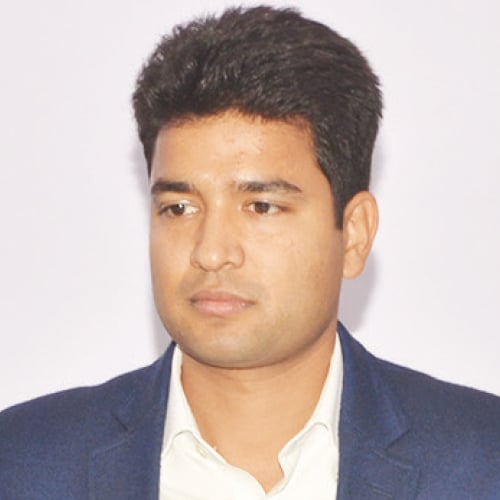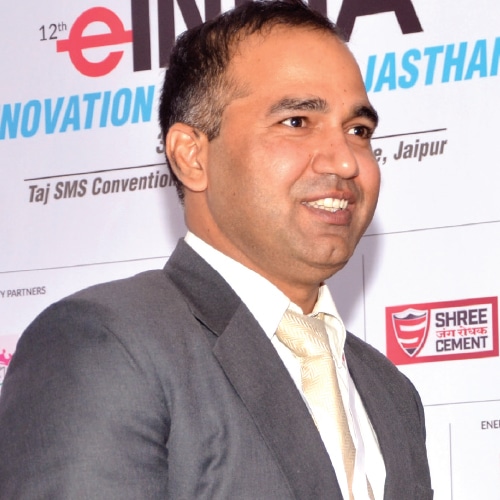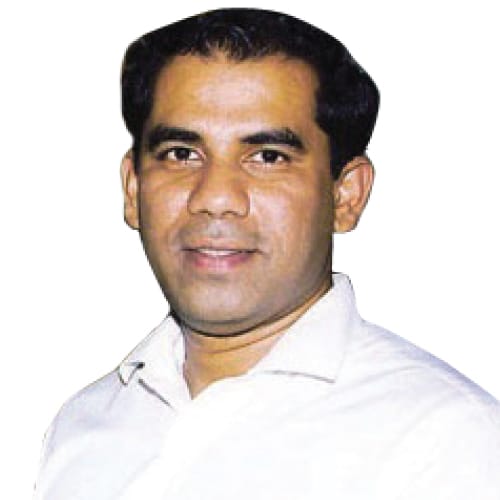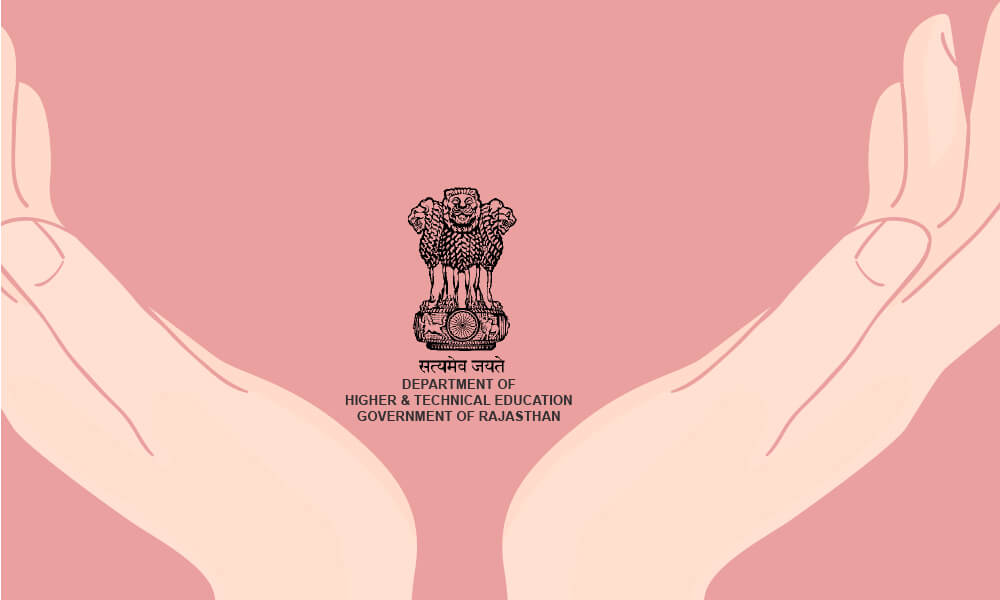Realising the growing importance of higher education for youngsters as one of the important prerequisites for grabbing good jobs and achieve a decent living standard, the Government of Rajasthan is focused on introducing innovations into the State’s educational landscape, writes Akash Tomer of Elets News Network (ENN).
Rajasthan has a vast higher education system in terms of numbers, types of institutions, defined by source of funding, and the nature of management. Rajasthan is among the top six States of India in terms of number of colleges. The other States are Uttar Pradesh, Andhra Pradesh, Maharashtra, Karnataka and Tamil Nadu.
The education system of the State draws its strength from the aspirations of its young population for greater economic and social mobility associated with higher education. The higher education landscape of Rajasthan reflects that along with quantitative expansion the thrust is on qualitative aspects.
The departments associated with the education in the State are committed to promote holistic learning amongst youths of Rajasthan so as to enable them to lead meaningful lives in the society. Every department is keen to develop the requisite capacity and capability of youngsters that will lead to development of the nation.
The department of Higher and Technical Education, Government of Rajasthan, focuses on nurturing employable, positive and aspirational generation of lifelong learners. Such traits help the youths of the State to sustain in this competitive and quality conscious era of globalisation.
In order to be in line with the government’s vision, the department facilitates higher education institutions that provide a lifelong education to the masses, address the needs of productive employment, and also higher quality institutions that are primarily focused on research and innovation. This will entail creation of multi disciplinary institutions/ universities that
• Offer a wide range of basic under graduate and post graduate courses.
• Impart skill based training to bring out employable degree holders at grass root level.
• Focus on achieving social objectives of poverty alleviation, and civic consciousness regarding health, sanitation, and other collective responsibilities.
• Give priority to student learning outcomes.
• Provide industry aligned courses to develop functional, critical and soft skills.
• Can be centres of research excellence compatible to the best in the country.
• Encourage out of the box thinking and creation of knowledge.
• Would attract the best minds both to the pool of students and faculty and in the process can become valuable assets in India’s knowledge driven economy.
MISSION
The Rajasthan Government’s mission is to develop a higher education system in the State that strives for excellence in quality, easily accessible to every section of the society, and produces skillful human resource that can stand up to the challenges of the changing times.
Easy access to higher education opportunities will enable students to develop knowledge and skills necessary to achieve their professional goals, improve the productivity of their organisations and provide leadership and service to their communities.
The Government, with such a higher education system, wants to ensure that it is open to all and does not discriminate an individual on the basis of religion, caste, gender, physical or financial conditions. An education system that churns out social thinkers, scientists, inventors, innovators, artistes, players, motivators of highest quality is the need of the hour.
The system has its focus on enhancement of quality of teaching and research at par with the global standards through revision of curriculum, syllabus, teaching-learning material, text books, pedagogical processes and ICT in education.
To improve the quality of all Higher Education Institutes (HEIs), benchmarking will be done through The National Assessment and Accreditation Council (NAAC) and through National Board of Accreditation (NBA).
Rajasthan endeavours to put in place such an education system that could support and sustain India’s undeniable status of an emerging economic power.
KEY FOCUS AREAS IN HIGHER AND TECHNICAL EDUCATION
 Student Management
Student Management
• Student information
• Academic details
• Forums and groups
• Profile management
Examination Management
• Online enrolment
• Test paper management
• Center, duty management
• Degree, marksheet management
Curriculum Management
• E-learning
• Course and subject management
• Centralised content repository
Faculty Management
• Faculty information
• Research management
• Profile management
• Attendance mgmt
College/University Management
• Affiliation management
• Election management
• Placement management
• Grant management
Admission Management
• Online admission forms
• Online fees payments
• Central seat allocation
Institutional Enhancement
Due to the initiatives of the State Government and other institutions that are involved for the purpose, the higher education scenario in Rajasthan has undergone a transformation. In a bid to promote higher education, end gender inequalities, improve enrollment of students in colleges and universities, and provide other educational services, many new policies are being framed and implemented time to time. Today, Rajasthan is a fast evolving State in India as a centre for education. The Government of Rajasthan is endeavouring to make this State a hub of best educational centres of the country.
Making education available to tribal population of the State was a major challenge for the Government, but it was an important requirement for communities such as these. In order to fetch fair prices for the artefacts they sell, it is extremely important for them to be aware and literate. The Government lays emphasis on education to girls and many efforts are directed to make such programmes popular among the masses.
Initiatives for Educational Quality Enhancement
The Government of Rajasthan and higher education departments under their aim to provide quality education to youths of the State. The Government’s endeavours are recognised nationally since there are four universities amongst the top 100 universities in National Institutional Ranking Framework (NIRF) 2017.
The institutions are two deemed universities Birla Institute of Technology and Sciences (BITS – 13th position) and Banasthali Vidyapeeth (53rd position). Besides these, there are two state universities Rajasthan University of Veterinary and Animal Sciences (RUVAS – 68th position) and University of Rajasthan (UOR – 79th position). Various Initiatives to improve the quality of higher education in the state are:
Rating and Ranking of Institutions of Higher Education at State Level:
• Format for Rating and Ranking has been prepared
• A test run conducted
• Results were analysed and necessary modifications were incorporated
• Revised matrix was submitted for development of related software to DoIT.
• Meanwhile a Google sheet is prepared for Rating and Ranking and a sample test was again piloted and the results obtained are being analyzed.
• Rating and Ranking Matrix will be mandatory, after validation of Google sheet format, for all State Government and private colleges and universities.
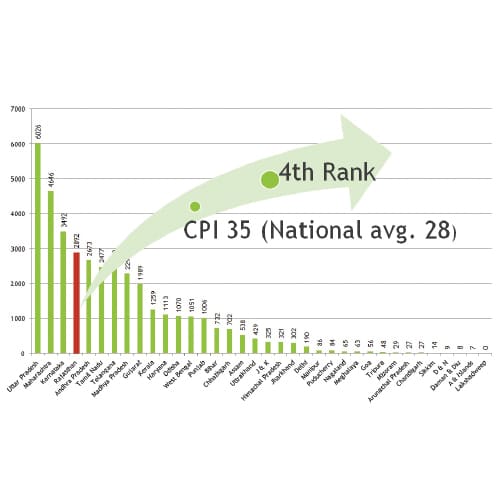 Bilateral Collaboration Within and Outside the Nation
Bilateral Collaboration Within and Outside the Nation
• Exploring possibilities of collaboration with national and international institutions as per UGC scheme “Promotion and Maintenance of Standards of Academic Collaboration between India and Foreign Educational Institutions Regulations”.
• A study of institutes of Higher Education in Kerala State to identify the areas of collaboration and to identify institutions within and outside the country.
• Collaboration with IGNOU for 5 Skill and Entrepreneurship capacity building courses (Certificate/ Diploma) in 22 Government colleges in the current session 2017-18.
• Collaboration with empanelled partner of NSDC, GOI for enhancement of English Language Labs.
NAAC Accreditation
A total of 70 colleges have been accredited by NAAC of which seven colleges are accredited with A Grade. A State Level Quality Assurance Cell (SLQAC) has also been formed for:
• Preliminary scrutiny of Self Study Report (SSR) by NAAC assessors before submitting for accreditation and input communicated to Institutions for improvement
• In-house Evaluation teams to inspect institutions before NAAC peer team visit
• Three one-day workshops organised to assist, train and enable the nodal officers to prepare SSR and to expedite the process of accreditation of their colleges
Faculty Improvement
Leadership training workshop for academic administrators (Principals, Vice-Principals and senior faculty members) in two batches was conducted to hone their leadership and management skills by IIM Lucknow.
• Orientation programmes and Refresher Courses are mandatory at institutions
• Induction training for new recruited faculty to be initiated.
• Various leadership, management information, gender sensitisation, RTI, work on excel, PPT presentation, disaster management and improvement programmes throughout the session are organised at HCM RIPA.
RUSA Efforts and Achievements
The Rashtriya Uchchatar Shiksha Abhiyan (RUSA) is a Centrally Sponsored Scheme (CSS). Launched in 2013, it aims to provide strategic funding to eligible state higher educational institutions. The central funding (in the ratio of 60:40 for general category States, 90:10 for special category states and 100% for union territories) would be norm based and outcome dependent. Rajathhan State Higher Education Council (RSHEC) formed for planning, monitoring and evaluating quality assurance in higher education.
Major Achievements:
• State Higher Education Plan (2015-2022) prepared and proposals worth Rs 20,88,343 submitted to MHRD
• Infrastructure grant to five state universities and 100 government colleges
• RUSA grant released for opening one new engineering college at Baran
• Creation of 17 basic essential facilities in all RUSA beneficiary institutions.
• Internal audit of the Physical and Financial progress of all RUSA beneficiaries.
• Monitoring of physical progress by Geo tagging. 172 points which records highest in the country from any beneficiary state.
• Monitoring of all the Financial transactions by beneficiaries, with the help of Fund Tracker .
• PFMS Compliance of all transactions
• Workshops conducted for E-Learning initiatives, educational leadership and PFMS compliance transactions
New Schemes under RUSA: Dishari: The scheme has been launched for students for capacity building and employment enhancement in their colleges.
Yuva Swavlamban Yojna: The scheme has been launched for setting up Career Counseling, Placement and Skill Training Cell for the students.
Gender ATLAS: Preparation of Gender Atlas of the State through Application of Remote Sensing and GIS is under process.
Bhamashah Sahyog Yojna: A new scheme to muster support from individual donors and companies under CSR to overcome the pit falls in the field of higher education launched.
IT innovations: Plans and Implementations
The introduction of Information and Communication (ICT) in higher education has profound implications for the whole education process especially in dealing with key issues of access, equity, management, efficiency, pedagogy and quality. For achieving the vision goals of 2022, the Department of Higher Education, Government of Rajasthan, has prepared a Mission document for ICT strategy which has the following attributes:
• To implement e-Governance in Higher Education through Higher Education Portal
• Availability of Smart Classroom in Colleges
• To Provide Wi-Fi facilities to students and Faculty
• To encourage Massive Open Online Courses (MOOCs).
• Big Data Challenge and Hackathon on regular basis
• Library computerization in HEIs
• Spoken tutorials for FOSS courses
• Digital class rooms in Girls colleges under CSR
• Establishment of Smart Science Labs
• Establishment of Crowd Sourced Social Platform for Education
• Linking colleges with INFLIBNET facility of UGC
• Implementation of GIS mapping in HEIs
• Promotion of Industry Academia linkages.
• Online test for students to access skill and aptitude on regular basis.
The Government of Rajasthan through its various initiatives has implemented various ICT initiatives to transform the higher education segment of the state. Few of them are:
Based on ICT, Crowd Sourced Social Platform For Education, it is a new initiative by Higher Education Department of Rajasthan to connect students, teachers and group of subject experts to share knowledge among them and making it available to all students across Rajasthan.
2. In seven selected government colleges at divisional headquarters smart science labs are established, that will serve as centre of educational excellence, models for further replication and nodal centre for linked colleges for sharing and disseminating the knowledge.
3. Online admission Process (OAP) is successfully implemented in all government colleges for UG and PG courses in last four years. Students now are not required to submit hard copy of their application form.
4. Integration of OAP will be integrated with upcoming higher education portal and college management modules. Admission data will also be integrated with Examination module which will eliminate the resubmission of examination forms by the admitted students and later can be used to award degrees.
NEW INITIATIVES
1. District Higher Education Advisory Council to be formed for Institutional support and academic enhancement, Industry Academia interface Innovative market driven relevant courses Skill-training, entrepreneurship and employability of youth in the state.
2. Small business and entrepreneurship centres are to be established in all universities of the State. Curriculum has been updated to make it market driven and relevant as per contemporary industry demands.
3. Universities are directed to design vocational courses (B Voc) for affiliated colleges and to take advantage of provisions made in UGC for Credit Framework for Online Learning Courses (MOOC) through SWAYAM portal, make National Skills Qualifications Framework (NSQF) compliant courses and obtain appropriate level for certification.
Government of Rajasthan is keen to develop the higher education segment as one of the best in India. Through its innovative initiatives, the state is making its youth educated and employable at the same time. Along with the government, higher education institutes of Rajasthan are also helping rural and tribal population of the state to overcome the challenges in this sector. The best practices will help the government to achieve their vision and generate more and more opportunities for the youngsters.
 What is the “Confessions of a Dying Mind” all about?
What is the “Confessions of a Dying Mind” all about?













